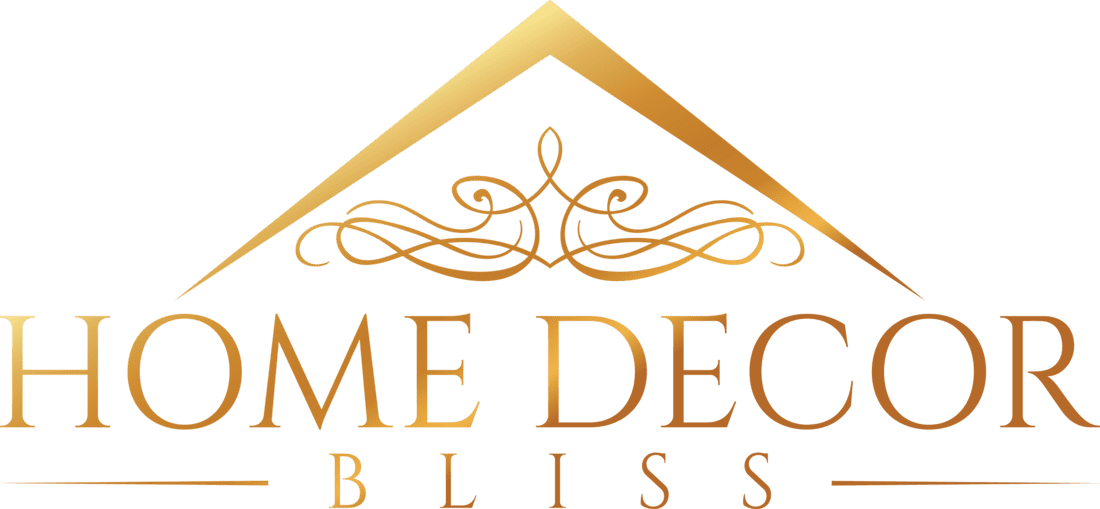Figuring out the best way to maintain hardwood flooring can be a challenge. For example, do you want to try cleaning with rubbing alcohol, or perhaps you accidentally got some on your hardwood? Is this going to cause damage? Is rubbing alcohol okay to use on wood flooring?
Luckily, we've done plenty of searching and have the answer below!
Pure rubbing alcohol will often damage hardwood flooring because isopropyl alcohol eats away most hardwood finishes, exposing your floors to the elements and everyday traffic/damage.
However, diluted alcohol (mixed with water) is used to clean hardwood surfaces, so if you can dilute the product enough, it shouldn't cause permanent damage to your hardwoods.
As we start this article, we will cover hardwood flooring and discuss how to keep yours safe from rubbing alcohol. Whether you want to try a new cleaning method, accidentally got isopropyl alcohol on your floor, or need extra help, we've got your back. With that said, let's dive in!
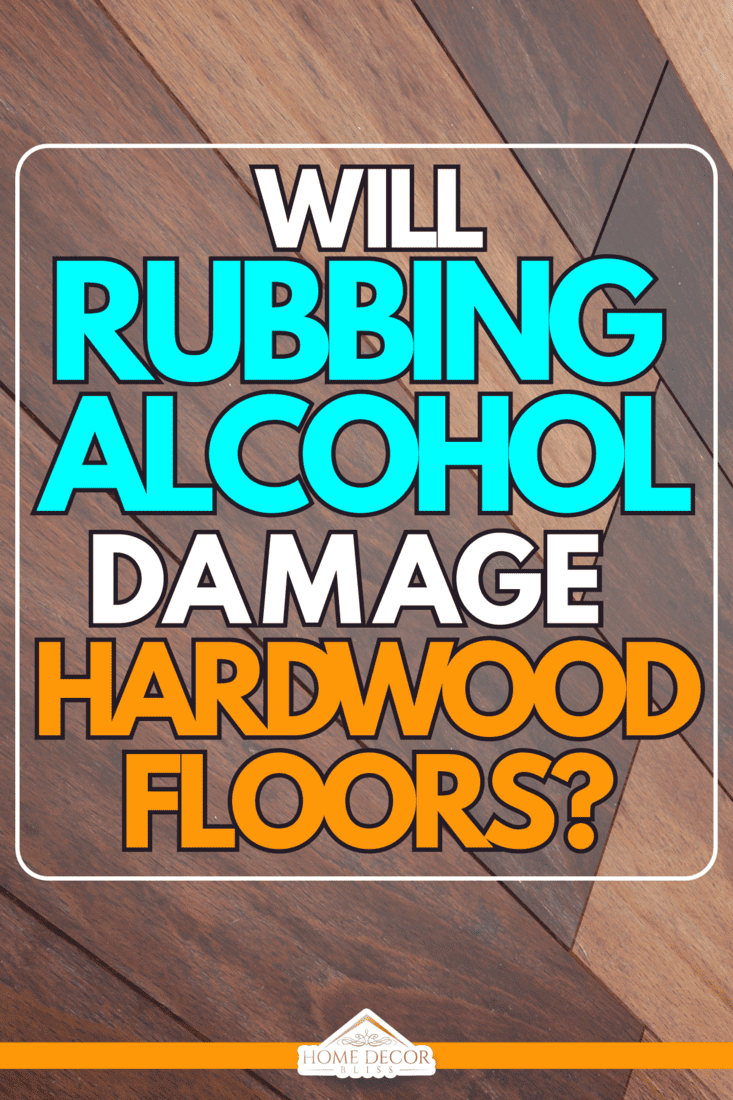
Is It Okay To Use Alcohol On Hardwood Floors?
You don't want to use pure rubbing alcohol on hardwood floors. Since the main ingredient in rubbing alcohol is isopropyl alcohol, it can be unsafe to use on hardwood.
That's because this type of product is strong enough to eat through hardwood's finishes and top coatings, which are responsible for protecting them.
Moreover, adding rubbing alcohol to your floor cleaner may not be a good idea in excessive amounts. You also want to avoid working with pure rubbing alcohol over hardwood, as drops of it can create visible stains/markings.
We sometimes add affiliate links and content that was curated and created by our team with the help of advanced ai tools to help showcase the best design styles.
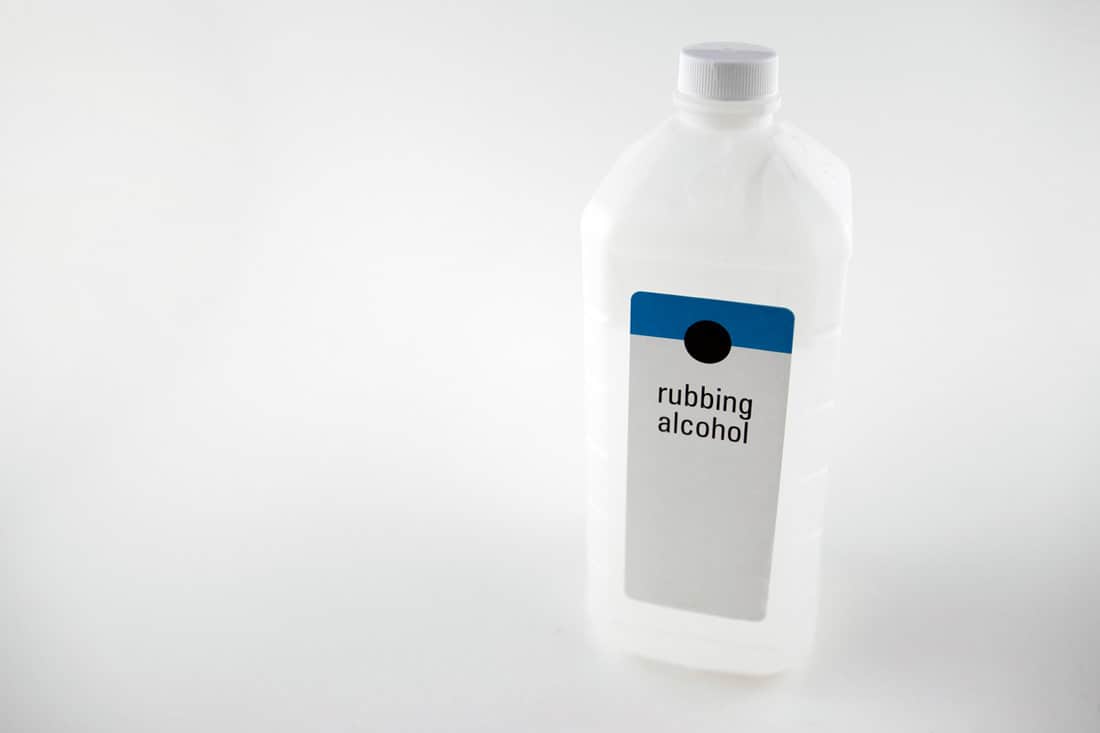
Hardwood is durable, but not when chemicals are involved. It is common to see people mix alcohol with water to clean wood flooring, but this isn't usually using pure rubbing alcohol.
And, if you wish to try diluting rubbing alcohol to clean your hardwood, you want to make sure there is one part rubbing alcohol to every four parts water.
The key is using enough alcohol to disinfect a given surface but not enough to strip away its top coating/finish permanently. That becomes even truer with hardwood floors, furniture, and cabinetry.
Will Rubbing Alcohol Remove Hardwood Flooring Finish?
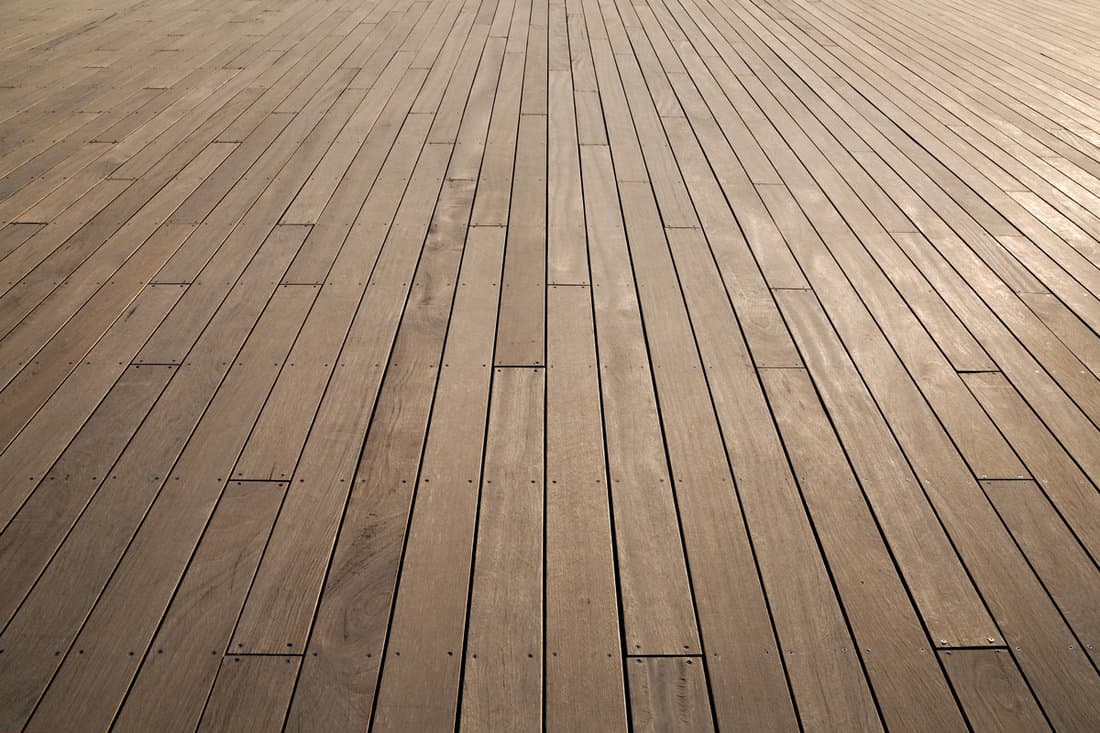
Depending on the ratio of your alcohol cleaning mixture, it can remove the finish from hardwood floors. As we said, pure rubbing alcohol is often too powerful to use for cleaning/disinfecting hardwood surfaces.
Although rubbing alcohol can work wonders for your counters, tile, and other high-traffic areas, applying it straight to treated or untreated hardwood can be harmful.
It's common for people to use pure rubbing alcohol to remove old varnishes and waxes from wood, so that can certainly pose a risk to your flooring if you do it on accident.
For example, if you try to spot-clean a stain on your wood floor with rubbing alcohol, the chances of creating an even worse marking are high.
That's because undiluted, your alcohol cleaner will eat away the first layer of coating on the hardwood. This can create an uneven section of your hardwood floor or even discolor it entirely.
Therefore, whenever you use alcohol or chemicals to clean your hardwood, ensure it's diluted with plenty of water.
What Is Rubbing Alcohol Good For?
Rubbing alcohol is an excellent disinfectant for wounds and household surfaces, and it can be mixed with water and used for everyday cleaning. However, pure rubbing alcohol can become problematic for older and natural surfaces.
Since hardwood is often treated and coated with water-based polyurethane, oil finishes, and wax finishes, applying alcohol directly to it can be damaging.
When you apply harsh products to hardwood surfaces, they can slowly eat away at those top protective coatings. So, if you were to dump rubbing alcohol on your wood floor accidentally and can't wash it off fast enough, expect damage.
The same applies to using it for cleaning without properly diluting it.
Rubbing alcohol is incredibly popular for human usage, including aftercare for ear piercings, disinfecting bites, deodorizing spaces, creating homemade ice packs, and even cleaning sponges and cloths.
However, when you use rubbing alcohol on treated surfaces, like hardwood, it isn't always such a great thing. A little goes a long way, so remember that when using rubbing alcohol around the house.
Why Do People Use Rubbing Alcohol To Clean Hardwood?
Since alcohol has a nearly neutral pH, many people use it to clean hardwood floors. Generally, when you add alcohol to water and mix it in vinegar or something similar, it creates a powerful floor cleanser you can apply with a mop.
Like any store-bought floor cleaner, you want to use rubbing alcohol in small doses for hardwood. Especially if your flooring is older, it can be harmful to apply harsher ingredients to it constantly.
Although alcohol does work well to disinfect floors and give them a good cleaning, too much can take away their top coating and natural beauty.
Think of this as stripping away the character of your hardwood.
It's also worth noting that rubbing alcohol works wonders for removing gunk and grime from hardwood—another reason so many use it in their homes.
Oddly enough, it's never recommended to use rubbing alcohol on wood furniture since it will strip away the coating and finish of the piece. Floors can take more of a beating, so they will withstand alcohol cleaners much better than other forms.
How Do You Use Rubbing Alcohol To Clean Hardwood Flooring?
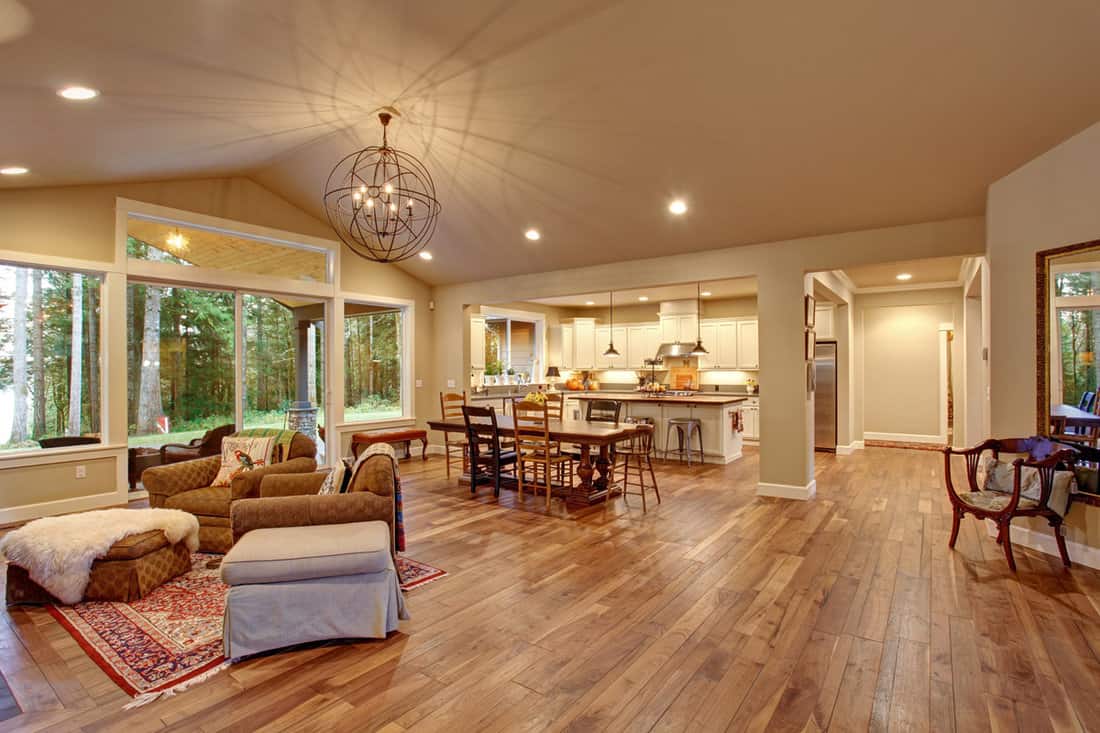
If you want to skip traditional hardwood cleaners and switch to a rubbing alcohol mix, this is possible. To create the right mixture of ingredients, you want to follow this formula:
- Mix one part rubbing alcohol with four parts hot water.
- Apply the mix to your floors using a sponge, mop, or cloth.
- Immediately after using your rubbing alcohol cleaner, dry the floor.
Experts suggest using a microfiber cloth for drying the wood after applying rubbing alcohol, although a towel should suffice.
Since rubbing alcohol dries fast, you want to get a cloth/towel as soon as you apply the mixture to your hardwood.
There will also be enough water (if you use a 4:1 ratio) to slow down the effects of rubbing alcohol on your flooring, which is good.
It's not bad to apply rubbing alcohol to hardwood flooring if you follow the recommended guidelines for diluting it. That's where most people go wrong and experience damage, so this is a crucial step in the cleaning process.
It's also a problem when people pour straight alcohol onto flooring and try mopping it, so always mix it with water. Here's a YouTube video explaining the process further:
How Often Should You Clean Hardwood Floors With Rubbing Alcohol?
When it comes to how often you should apply rubbing alcohol to your hardwood floors, we recommend doing this once per month.
Since your mixture will be mainly water, mopping with alcohol won't be damaging to the floors if enough time goes by between applications. Remember, the more alcohol you use on hardwood, the greater the chance of its top coating weakening.
One idea for a solution is one part alcohol to four parts distilled water plus a few drops of blue Dawn dishwashing liquid. That adds a soap element, which should also lessen the effects of rubbing alcohol.
As mentioned, it's always best to go light with the alcohol in your cleaning solution. Furthermore, you want to space out your applications for your hardwood, especially if it's older.
Rubbing alcohol is also great for disinfecting hardwood, which you don't need to do more every few weeks. As long as you keep your floors mopped and don't wear shoes throughout the home, you won't need to constantly apply an alcohol-based solution.
What Is The Best Way To Clean Hardwood Floors Daily?
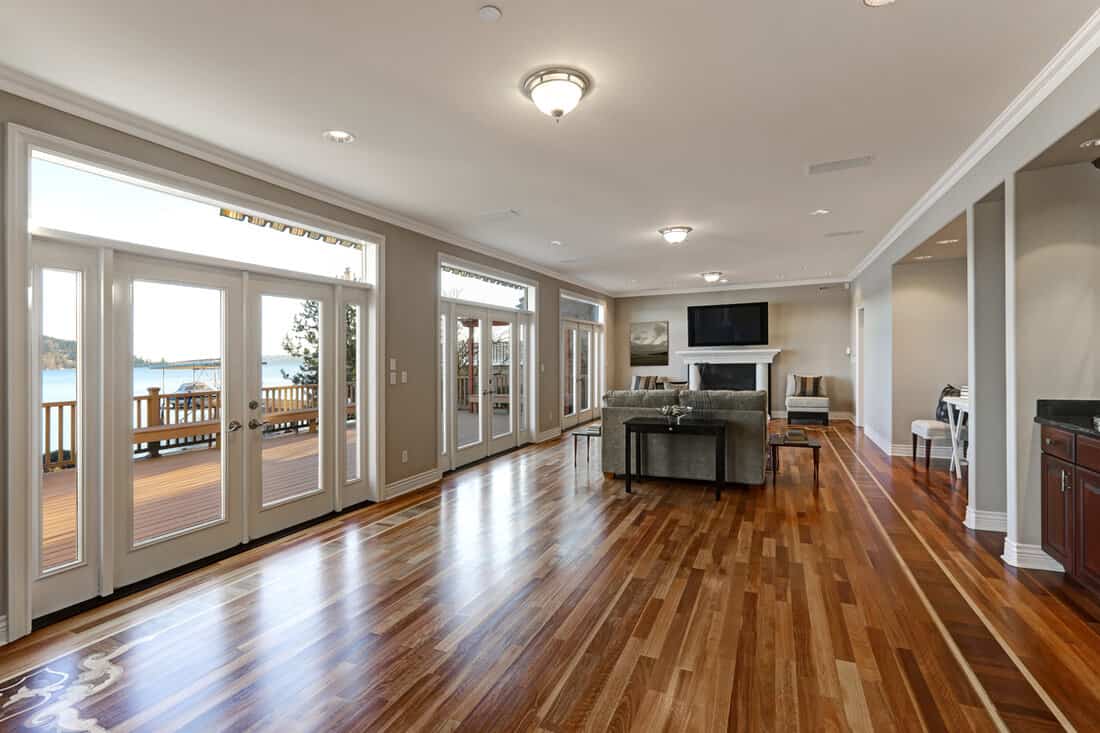
Creating a routine is imperative for those wanting to clean their hardwood daily/more often. Generally, you don't want to use harsh cleaners on the wood more than once per month.
Instead, use a broom or hardwood floor mop for cleaning wood floors daily mixed with a hardwood cleanser. Doing this will ensure your hardwood stays clean but isn't stripped of its natural oils and top coating.
According to The Home Depot, you may also want to use a microfiber dust mop pre-treated with a dusting agent for everyday cleaning.
Many people also vacuum their hardwood floors once each week, so taking care of your flooring will be a multi-step process.
What Is The Best Product For Cleaning Hardwood Floors?
Some of the best products for cleaning hardwood flooring include Bona or Murphy Oil Soap. These are two popular brands for hardwood floor cleaning, so that's a great place to start.
Furthermore, many DIYers use a mix of one part vinegar to 10 parts warm water for cleaning their hardwood floors. Remember, hardwood responds best to gentle products, like everyday soap you would use for your hands and sanitizing counters, etc.
Adding a few drops of soap to vinegar or rubbing alcohol and water mix seems to be the default. Don't be afraid to try a few new things to see what works best for your hardwood.
Bona Hardwood Floor Cleaner
This cleaner has a water-based formula, is residue-free, safer for people, pets, and the planet, works well on hardwood flooring, and comes in a 128-fluid-ounce bottle.
To Finish Up
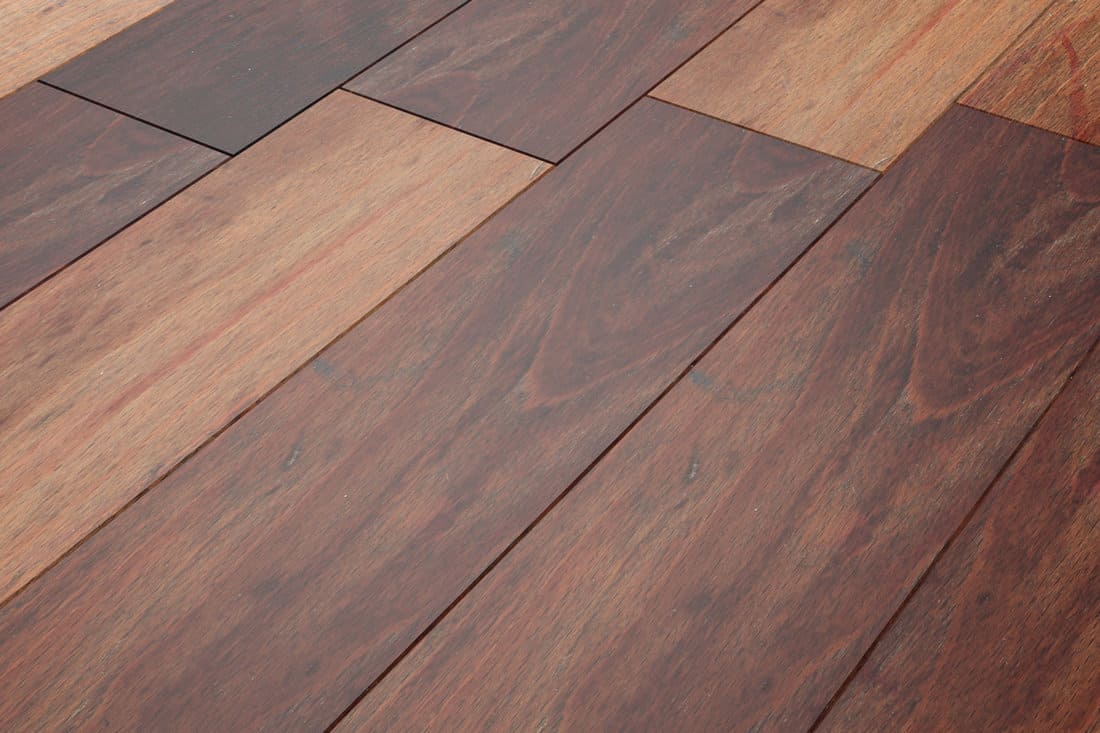
Whether you're new to cleaning hardwood flooring or need help with older ones, it's always good to understand the different products you can use. We found that rubbing alcohol on its own is too strong for hardwood.
Instead, mix one part rubbing alcohol with four parts water to create a hardwood-safe solution for monthly deep cleaning. Again, you don't need to do this often, as too much rubbing alcohol can strip the protective coating off your floors.
Less is more!
And while we have your attention, check out these helpful related posts below:
